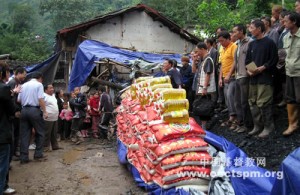The situation in Syria continues to show up in our news. Usually it is a quick description of the conflict within the country or perhaps coverage of the geo-policital implications of these events for the region and the world. In the midst of these important, and often tragic, stories there is another narrative playing out involving Syrians looking for safety and resources, a journey which is increasingly taking many them across the border into neighboring countries. As the fighting within the country continues and intesifies this group is growing, rapidly.
So as I was reading through some reports on the refugee situation this past week I was struck by some of the numbers 700,000, 75 and 52. Initially they are just numbers, like any other scattering of statistics that help make up our news cycle. These numbers help give us context and help us as we work to determine appropriate response. What struck me was what do these numbers mean in the context of our call to respect human dignity in the course of our work. What are we to do with these three numbers and the situation they describe as we strive to accompany people in ways that respect their human dignity? And now the numbers.
700,000
Accorcding to a recent United Nations’ report the anticipated number of Syrian refugees by the end of this year has jumped from 100,000 (a number surpassed in July) to 700,000. This massive increase will put extra strains on Syria’s neighbors, who continue to keep their borders open to Syrians fleeing the violence. This strain will need a call for renewed commitment to keep the basic needs of human dignity in the forefront of any response. For our church this call will help in our partnership role through the Lutheran World Federation as it works to coordinate the Za’atri refugee camp in northern Jordan.
75
Part of the context of this work is that 75-percent of Syrian refugees are women and children. This means that many of those arriving in the camps are not only escaping violence and arriving with very little, they are also arriving as separated family units. In the midst of making sure children are getting enrolled in classes and families are getting proper nutrition and medical attention, responding through the matrix of human dignity also means creating space for the emotional and spiritual well-being of these new arrivals. As the Lutheran World Federation helps at Za’atri these are some of the concerns it brings to the work; to make sure the needs of both arriving refugees and host communities are being addressed.
52
In Za’atri one of the other realities is that 52-percent of arrivals are under 18 years old. Many arrive to the desert climate with very little in the means of heavy clothing, an unacceptable situation as they move towards the cold months of winter. Also with the rising numbers the need for educational and recreational space and activities increases. The Lutheran World Federation is working to provide winter-proofed tents and clothing for these children and their families as well as working to organize community-based groups within the camps to help them name and address their needs.
In the end these numbers help paint the picture of an evolving situation, one where the church is working to be vigilant and present in its calling to care for the least of these. And one where we work to make manifest the reality that all are created in the image of God and are to be treated with the dignity that image carries.
To learn more about where these numbers come from and the situation in general you can read the UNCHR and LWF reports.
- UNCHR: UNHCR and partners seek extra US$295 million for Syria refugee ops
- LWF: Preparing Syrian Refugees in Jordanian Desert for Harsh Winter Months
___________
Gifts to ELCA International Disaster Response allow the church to respond globally in times of need. Donate now.


